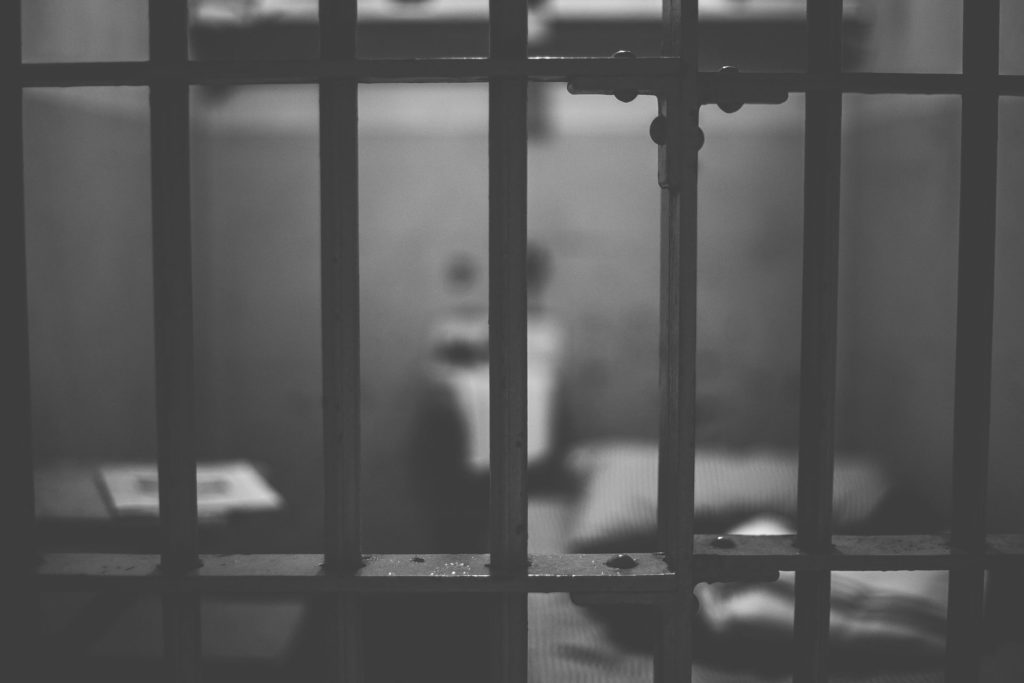
Background
1. My name is Davood Irani and I am from Tabriz. I became a Christian on 28 August, 2005.
2. I was born in a non-religious family, but like all Iranians I was forcefully deemed a Muslim from birth. Not that I was not a Muslim but I did not have much faith. When I reached an age when I could research and read books, I reached the conclusion that the path I have chosen is the right one and I pursued it. I began serving in accordance with my faith after I accepted Christ.
Leaving Tabriz
3. I moved to Tehran six or seven months after I converted, and settled there. I did not know any Christians in Tabriz, so I had to move to Tehran to have access to a “house church”. Since traveling back and forth between Tehran and Tabriz was costly, I had to find a job and settle in Tehran so that I could be a member of the church.
4. I moved to Shiraz after a while. I began my service at the church in Shiraz in May 2007. I worked there for about a year and a half as the director of the church. For security reasons, we made sure church membership did not exceed ten people. As a result we had churches in different parts of the city.
Arrest and Imprisonment
5. We got a knock on our door at noon on 7 December, 2009. The landlord who lived downstairs came upstairs. We thought it was the landlord who had knocked. We opened the door and a few agents came inside. They were very polite. There were about five or six of them. Two of them were armed. They were plainclothes agents from the Ministry of Intelligence (MOI).
6. They came in and prepared a list of the items in our home. One of the first places they checked was the fridge. I personally never serve wine for Communion in my church, as we come from an Islamic background. I always bring juice like red grape juice to avoid causing any doubts for the believers. We were always very cautious about this matter.
7. They searched all of the rooms. They collected any signs of our belief from the walls. They did not show us a warrant, even when my wife asked to see it. I told her to keep quiet as they definitely had a warrant. They gathered my belongings. They collected all of my books. More than a hundred of my books were about Christianity. They took all religious symbols like crosses or religious paintings. There was just one painting with the image of the Christ that they did not take. They also did not take our satellite receiver. None of the items they took from our home, including my laptop and my wife’s personal computer, were ever returned to us.
8. There were two cars. One was a Peugeot and the other one was a grey Samand. They took us to the No. 100 detention centre [known in Shiraz as Pelak-e Sad]. When we approached the No. 100 detention centre, a person said “glasses”. This meant that we were to be blindfolded. They blindfolded us. We went inside the detention centre, and they put us in cabins that seemed to be wooden. They handcuffed us to a table. They brought us food. An official whom I later understood to be high-ranking came in. They stood me up and told him that they have arrested the suspect. Then we were interrogated separately. I was interrogated until 11pm that night. They gave me a sheet, and I wrote my defence argument. They told me that our charges were apostasy, spreading propaganda against the Islamic Republic, and membership in groups opposed to the Islamic Republic. The charge of insulting Islam was added later. I just explained that we are Christians, and that we have the right to hold our own beliefs, and to assemble, worship, and pray. I explained these things in that sheet.
9. These were the questions they asked: “What do you do?” “Where have you been?” They put the names of the friends with whom I was in contact in front of me. They said these were Christians. I said “No, they are not.” They said, “Yes, they are. You are lying.” I said, “I cannot declare their faiths on their behalf. They have to declare it themselves. I cannot say whether they are Christians or not.” After 11pm they put me in a cell. There were two other people in that cell. After one night they transferred me to another cell. There were usually two or three of us in that cell. I was interrogated every day. Interrogations began at 8 in the morning and lasted until lunchtime. I would return [to my cell] for lunch. The interrogation would resume after lunch, and they typically lasted until ten or half past ten. Sometimes they lasted until half past eight.
10. On the next day, 8 December, 2009, they took us to the Islamic Revolutionary Court’s Procurator’s Branch. They put us in a white van. They tied our hands and feet to the floor of the van. We were arraigned. The procurator, Mr Kheshti from the sixth branch, was polite. He talked about our beliefs. He spoke about us being Protestants. He said that we were Protestants, and that meant that we were protesting. He said that [because of being a Protestant] I was supposed to do something against the norm. This was what he believed. He wanted to make me confess. Anyway, they were wrong. After arraignment they said that we could post bail. But they only communicated this orally, and it was not true. They returned us to Pelak-e Sad detention centre.
11. My friends in Tehran arranged for us to be represented by a defence lawyer. I met with my lawyers, Ms. Giti Pourfazel and Mr Hossein Jadidi, [later on] when I was in Adel Abad Prison.
12. I was interrogated during roughly 25 of the 30 days that I was at Pelak-e Sad. I was interrogated both in the morning and in the afternoon. On some days they only interrogated me in the afternoon. For instance, if the interrogator came at noon, he would start the interrogation at that time. We had two interrogators. One would ask questions. The other one discussed religious matters. He wanted to convince me that my beliefs were wrong. The one who asked questions would say that he was obtaining intelligence regarding where we are connected to, and whether it is the UK or Israel. In our country there has been a lot of propaganda about the UK and Israel. They [commonly] accuse people of being in contact with the UK. When they open a Bible, and the phrase “Elam” is printed in it, they say that Elam is an organisation led by the British government, and that we are connected to the British and receive money from them. They asked us to tell them the names of individuals in Tehran with whom we were connected. The one who discussed religious issues continuously said that we were wrong. Or, for instance, he would ask me about fundamental Christian teachings and tried to convince me that I was wrong and misguided.
13. I defended my beliefs. Regarding the persons they asked about, well, they already had their names. There was no need to hide anything and things were very clear. But it was not necessary for me to tell them everything.
14. I requested to be transferred to a solitary cell, but my request was denied. My wife was in solitary confinement for three days. They had arrested four of us [from the house church]. The other two were members of my church as well. We were interrogated separately.
15. In addition, they had arrested an old couple. They had taken them to the infamous “glass room” at the Pelak-e Sad detention centre. The old couple showed a lot of resolve. They held them for three days to punish them, but they dropped the charges against them. However, later on the authorities summoned 40 members of our church and interrogated them. They wrote down their names and asked them about their beliefs, but they released them.
16. Their questioning was designed for gaining additional information. For instance, they would falsely say that my wife has told them something. Or they would say that someone has said something behind my back. This is what they were working on. In reality, it was a psychological game. It was not torture in the conventional sense, but we can call it psychological torture when your wife is in another cell and they put someone next to you who repeatedly says that your wife may be raped.
17. They had no problem in saying that our crime was apostasy. However, during interrogations they would tell me that they would not charge us with apostasy, and that they would focus on the political aspects of the case. But in reality they pressured me because I had become an apostate. They would repeatedly say that I was born to Muslim parents and that I was a Muslim who has converted.
18. MOI agents threatened me. For instance, they would calmly say that if I continued what I did and kept evangelising, maybe a car would strike me. They would say that if I spoke about my faith, maybe something would happen to me. “Anyway, you have a wife. You may go on a trip,” they would say.
Difficult conditions at Adel Abad Prison
19. They transferred me to Adel Abad Prison. They took me to the quarantine ward. The quarantine ward contains all kinds of offenders. It is very large. One could say that two to three hundred people are living in a limited space. This place has triple bunk-beds. Many sleep on the floor. There are only three showers and four toilets for two hundred people. These showers don’t have cold water. They only have hot water. The water is 60 degrees [Celsius], and using it is very hard. The prison is in a terrible condition. There are mice under the blankets when you sleep. Everywhere was infested with lice. I slept in a corridor which was between the exit gate and our ward, which was the quarantine ward. The gate was not covered with glass. I got a severe flu. They do not dispense any medications in the prison. They only give me a penicillin pill once every three days. No treatment is offered. This is because they are concerned about illicit drug use. Someone might abuse the drugs by making a solution and injecting it or use it in some other way. It is a very difficult situation. Adel Abad is a frightening and, unfortunately, an unhygienic prison.
20. I requested to see a doctor a number of times. I was very sick, and I had only one blanket to keep myself warm. They did not care at all. It was not just me. They did not care about any of the prisoners. It is a horrible situation. [They pick] people imprisoned for financial crimes to be in charge. They treat prisoners with a lot of disrespect and cruelty. They beat the prisoners severely. Sometimes they just beat the prisoners to put them in their place. One of the wardens spoke to me in a very rude manner once. But the prisoners were very nice to me and treated me with a lot of respect. They would open up to me, and I had good discussions with them and I prayed for them.
21. I had been in Adel Abad Prison for two to three days when they returned me to Pelak-e Sad detention centre so that I would face a Christian who did not believe in the Trinity. They wanted to see how our discussion regarding the Trinity or the Holy Spirit would turn out. A number of people had come from Tehran [for this purpose]. Or that was what they told me. I sensed that a number of people were in the room behind me and that they were recording us. We had a discussion about the Trinity and they wanted to observe this discussion. I do not know what they were after. They had previously asked me who I thought would continue my [ministry] in Shiraz after me. Maybe they wanted to test me.
22. Overall I was in Adel Abad Prison for ten days. My wife was released five days earlier than me. We were released on bail of 30 million tomans each [around $30,000]. First, one of our friends from Marvdasht, a town near Shiraz, kindly posted bail for us. However, since he wanted to get a loan, we had to return the bail. We found another person to post bail for us from Tehran three months later, and we posted that bail instead.
Release and leaving for Georgia
23. Despite giving a pledge [to stop our activities], we continued our activities after we were released. When I was being released from Adel Abad Prison they told me that I was barred from leaving the country. But I knew that after six months the law requires [the authorities to present] a reason for extending the travel ban.
24. A year later, in December 2010, many [Christians] were arrested across Iran. Many of my friends went to Evin Prison. Ministry of Intelligence agents sent a message for me with each person they released from Evin Prison. In fact, they were threats, saying that they would come after me.
25. They had made these threats when I was detained as well. In reality these were attempts to make me leave the country. When we were about to leave Iran, we did not think that they had lifted our travel ban, even though they had not yet issued our verdict. I had also been able to get my identification documents from Pelak-e Sad six months after my release.
26. Eventually we decided to leave the country. In June 2011 we flew from Imam Khomeini Airport to Georgia. They did not hold a trial for us. One of our friends brought us a sheet of paper indicating that we had been acquitted of the charge of insulting Islam. They had not even mentioned the charge of insulting Islam during the interrogations. We were very surprised when we saw it. At least if it was brought up during the interrogations we would think that it was an issue. But this was not the case. They had just added the charge.
27. My wife and I later realised that we had both been sentenced to two years of imprisonment on the charge of acting against national security and [other] political charges. This sentence was issued to our lawyer. I only have a copy of the verdict, which sentences my wife and me to two years of imprisonment.
28. We did not intend to go to the UN. But our case turned out this way. After about a year, my wife’s passport was about to expire. Mine was valid until 2014, but my wife’s passport was valid for only three more months. We didn’t risk going to the Iranian embassy to renew her passport. Eventually we had to go to Turkey, so that we could [apply for asylum with] the UN. We flew to Istanbul. We then went to Antalya. After a month in Antalya we went to ASAM [Association for Solidarity with Asylum-Seekers and Migrants] in Ankara.
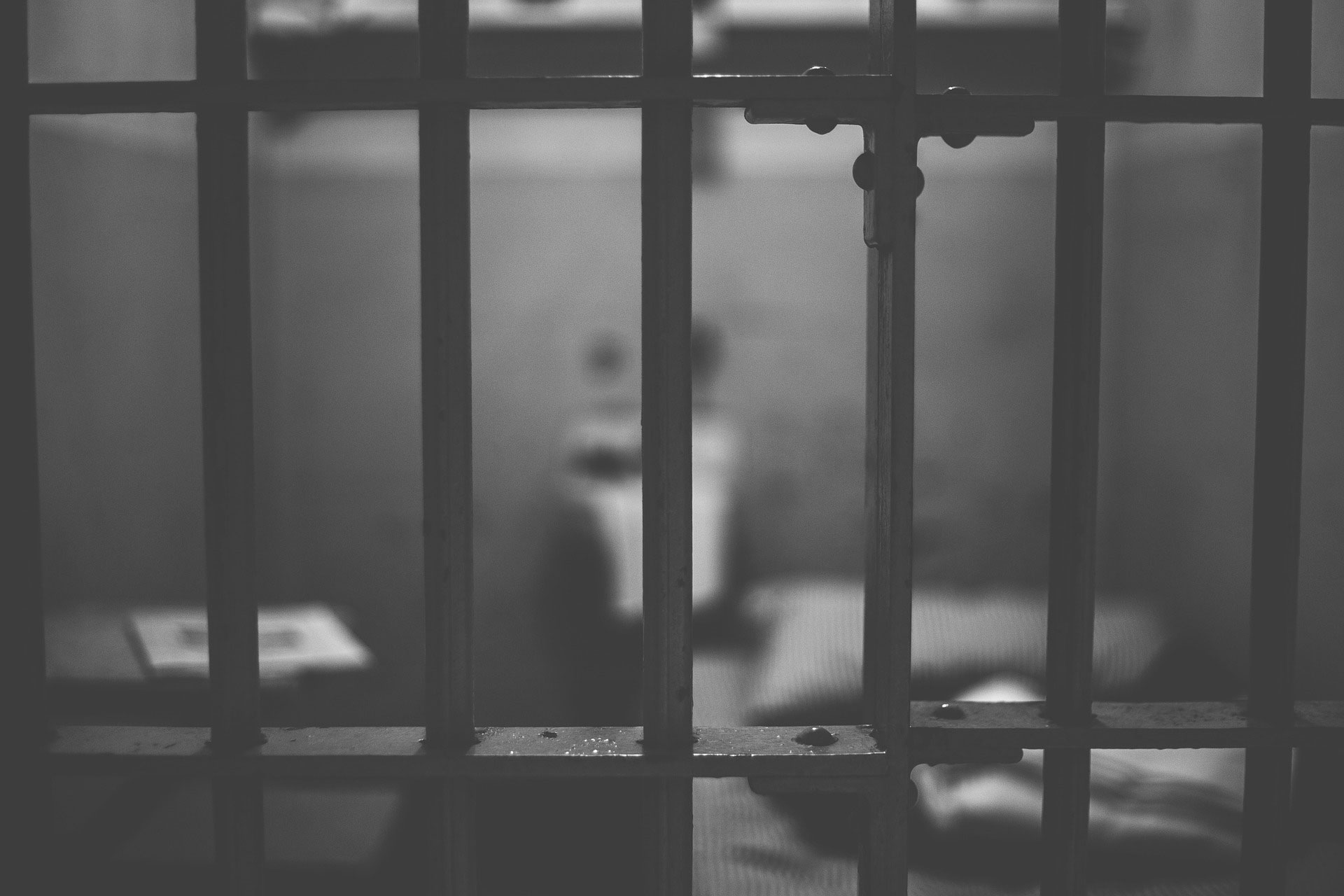
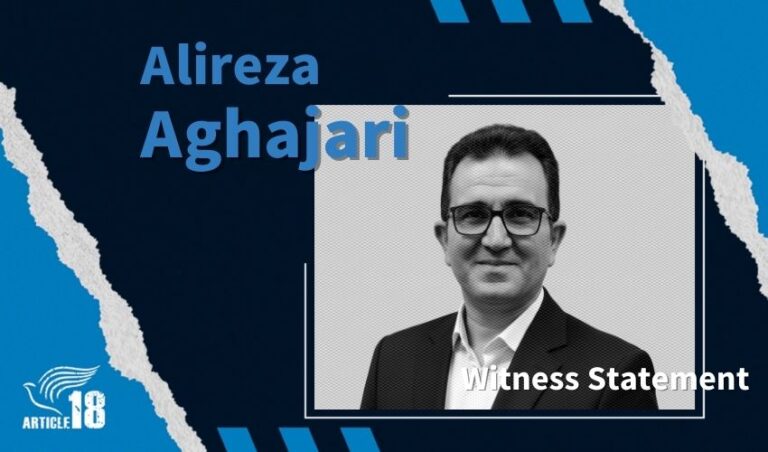
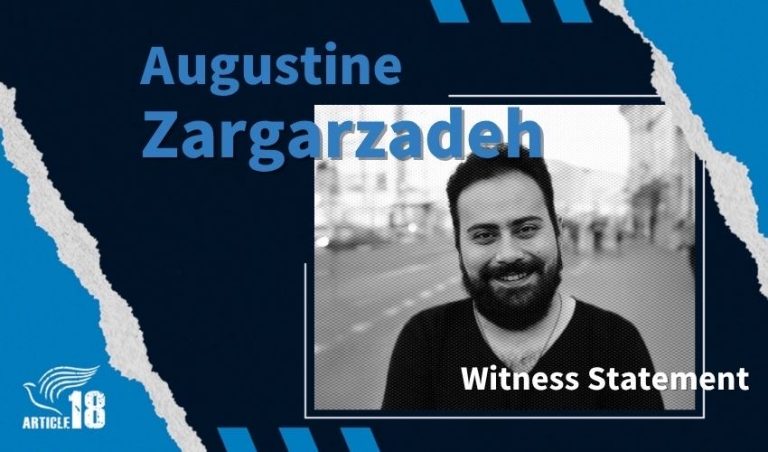
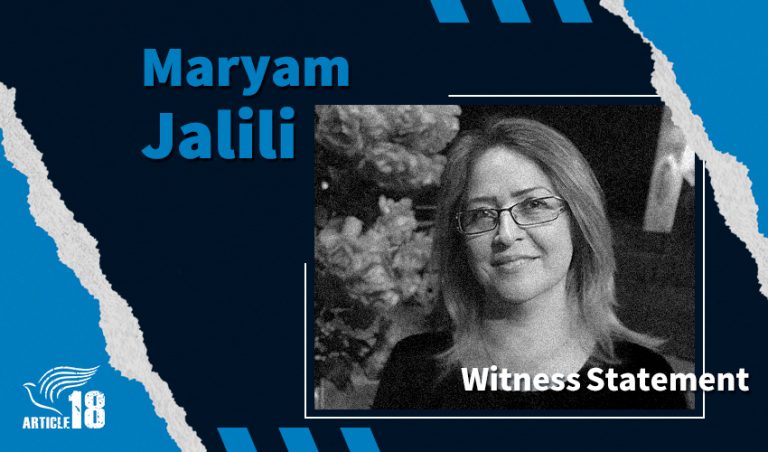
0 Comments